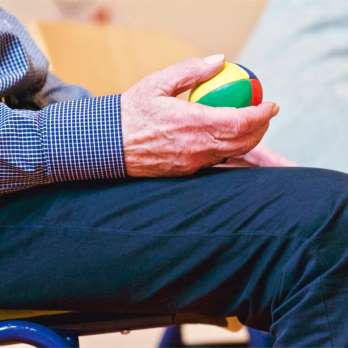TOP 10 Expert Tips for Managing Arthritis Pain and Improving Joint Health
Arthritis affects millions of people worldwide, causing pain, stiffness, and reduced mobility. However, with the right strategies, it's possible to manage symptoms and maintain a good quality of life. This article presents ten expert-recommended tips for effectively managing arthritis pain and improving joint health. Whether you're dealing with osteoarthritis, rheumatoid arthritis, or other forms of joint inflammation, these insights can help you take control of your condition and enhance your overall well-being.

What role does exercise play in managing arthritis?
Regular exercise is crucial for managing arthritis symptoms and improving joint health. Low-impact activities like swimming, cycling, and walking can help strengthen muscles around affected joints, increase flexibility, and reduce pain. Experts recommend at least 150 minutes of moderate-intensity aerobic exercise per week, along with strength training exercises two to three times a week. It’s important to start slowly and gradually increase intensity, always listening to your body and avoiding activities that cause excessive pain.
How can diet impact arthritis symptoms?
A balanced, anti-inflammatory diet can significantly impact arthritis symptoms. Foods rich in omega-3 fatty acids, such as fatty fish, walnuts, and flaxseeds, have been shown to reduce inflammation. Incorporating plenty of fruits, vegetables, and whole grains can provide essential nutrients and antioxidants that support joint health. Conversely, limiting processed foods, sugary drinks, and excessive red meat consumption may help reduce inflammation and alleviate symptoms. Some people with arthritis also find relief by avoiding nightshade vegetables like tomatoes and eggplants, though evidence for this is mixed.
What are effective pain management techniques for arthritis?
While medication plays a role in arthritis treatment, there are several non-pharmacological pain management techniques that can be highly effective. These include:
-
Hot and cold therapy: Applying heat to stiff joints and cold to inflamed areas can provide relief.
-
Massage: Regular massage can help reduce pain and stiffness in affected joints.
-
Acupuncture: Some people find acupuncture helpful in managing arthritis pain.
-
Mindfulness and relaxation techniques: Practices like meditation and deep breathing can help manage pain perception and reduce stress.
-
Transcutaneous electrical nerve stimulation (TENS): This therapy uses low-voltage electrical currents to relieve pain.
How important is maintaining a healthy weight for joint health?
Maintaining a healthy weight is crucial for managing arthritis, particularly for weight-bearing joints like knees and hips. Excess weight puts additional stress on these joints, accelerating wear and tear and increasing pain. Losing even a small amount of weight can significantly reduce pressure on joints and alleviate symptoms. For example, losing one pound of body weight can reduce the load on your knees by four pounds. A combination of a balanced diet and regular exercise is the most effective approach to achieving and maintaining a healthy weight.
What lifestyle modifications can help manage arthritis symptoms?
Several lifestyle modifications can have a positive impact on arthritis management:
-
Use assistive devices: Tools like jar openers, ergonomic utensils, and walking aids can reduce joint stress during daily activities.
-
Practice good posture: Maintaining proper alignment can reduce unnecessary strain on joints.
-
Quit smoking: Smoking can worsen arthritis symptoms and increase the risk of complications.
-
Get adequate sleep: Good sleep hygiene can help manage pain and improve overall well-being.
-
Manage stress: Chronic stress can exacerbate arthritis symptoms, so finding effective stress management techniques is crucial.
How can physical therapy and occupational therapy help?
Physical therapy and occupational therapy play vital roles in arthritis management. Physical therapists can design personalized exercise programs to improve strength, flexibility, and range of motion. They may also use techniques like manual therapy and teach proper body mechanics to reduce joint stress. Occupational therapists focus on helping individuals perform daily activities with less pain and greater ease. They can recommend adaptive equipment and techniques to make tasks like dressing, cooking, and working more manageable.
For those seeking physical or occupational therapy services, here’s a comparison of typical provider options:
| Provider Type | Services Offered | Key Features/Benefits |
|---|---|---|
| Hospital-based clinics | Comprehensive physical and occupational therapy | Access to a wide range of specialists and equipment |
| Private therapy practices | Personalized physical or occupational therapy | Often more flexible scheduling and one-on-one attention |
| Home health agencies | In-home physical and occupational therapy | Convenient for those with mobility issues or transportation challenges |
| Community health centers | Basic physical and occupational therapy services | Often more affordable, may offer sliding scale fees |
Prices, rates, or cost estimates mentioned in this article are based on the latest available information but may change over time. Independent research is advised before making financial decisions.
In conclusion, managing arthritis effectively requires a multifaceted approach combining exercise, diet, pain management techniques, and lifestyle modifications. By implementing these expert-recommended tips and working closely with healthcare professionals, individuals with arthritis can improve their joint health, reduce pain, and enhance their overall quality of life. Remember that everyone’s experience with arthritis is unique, so it’s essential to tailor these strategies to your specific needs and consult with your healthcare provider for personalized advice.
This article is for informational purposes only and should not be considered medical advice. Please consult a qualified healthcare professional for personalized guidance and treatment.
The shared information of this article is up-to-date as of the publishing date. For more up-to-date information, please conduct your own research.






